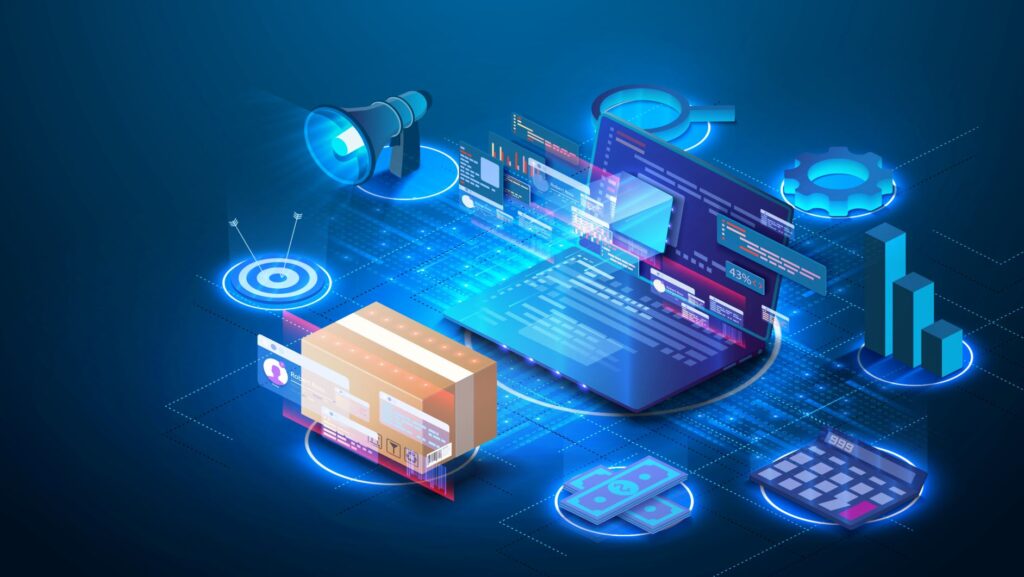
In today’s dynamic and interconnected business landscape, the role of supply chain management has never been more critical. The quest for operational excellence, efficiency, and competitive advantage compels organizations to explore innovative solutions, and at the heart of this transformation lies digitization. “Why is digitization important to supply chain management?” is a question that beckons exploration. In this discussion, we embark on a journey to unveil the profound impact of digitization in reshaping how supply chains operate.
What is supply chain digitization?

Supply chain digitization, also known as digital supply chain or supply chain digital transformation, refers to the process of integrating digital technologies and data-driven solutions into all aspects of a supply chain. The primary goal of supply chain digitization is to enhance efficiency, visibility, and responsiveness within the supply chain network, from raw material suppliers to end customers. This transformation involves the use of various technologies and data analytics to streamline and optimize supply chain operations.
What are the key components of supply chain digitization?

The five key components of supply chain digitization are:
Data Integration and Connectivity
The foundation of supply chain digitization is the collection and integration of data from various sources, including suppliers, logistics providers, and internal systems. Advanced connectivity technologies, such as IoT sensors and RFID, are used to capture and transmit real-time data.
Automation and Optimization
Automation tools, powered by technologies like machine learning and artificial intelligence, are used to analyze the collected data. This analysis leads to the automation of various supply chain processes, reducing manual intervention and optimizing operations.
Real-time Visibility
Digital technologies and data analytics provide real-time visibility into all aspects of the supply chain, from inventory levels to order status and transportation logistics. This visibility allows stakeholders to monitor the movement of goods and respond promptly to changes or disruptions.
Collaboration and Communication
Supply chain digitization encourages collaboration and communication among all stakeholders, including suppliers, partners, and customers. Digital platforms and communication tools facilitate the exchange of information and ensure that everyone is aligned with supply chain objectives.
Data Analytics and Insights
Supply chain digitization generates a vast amount of data. Data analytics tools are employed to process and analyze this data, deriving actionable insights. These insights help in making data-driven decisions, improving forecasting accuracy, and enhancing resource allocation.
These key components work in synergy to create a more efficient, transparent, and responsive supply chain, helping organizations adapt to changing market conditions, reduce costs, and improve overall performance.
Why is digitization important to supply chain management?

Digitization is crucial to supply chain management for several reasons:
Enhanced Efficiency and Productivity
Supply chain digitization automates and optimizes various processes, reducing manual tasks and human errors. This leads to increased efficiency and productivity, allowing organizations to do more with fewer resources. Automation of tasks like order processing, inventory management, and demand forecasting streamlines operations and reduces lead times.
Real-time Visibility and Responsiveness
Digital technologies provide real-time visibility into the entire supply chain. This visibility enables organizations to monitor the movement of goods, track inventory levels, and identify disruptions or bottlenecks as they happen. With this information, companies can respond quickly to changes and mitigate potential issues, such as delays or stockouts.
Data-Driven Decision Making
Supply chain digitization generates a wealth of data, which can be analyzed to gain insights into trends and patterns. Data-driven decision-making improves demand forecasting, inventory management, and resource allocation, ultimately leading to better planning and overall performance. It allows organizations to make informed, strategic decisions based on real-time information.
In summary, digitization is important to supply chain management because it enhances efficiency, improves responsiveness, and enables data-driven decision-making. It empowers organizations to adapt to changing market conditions, reduce costs, and provide better customer service, ultimately strengthening their competitive position.
What’s the difference between digitization and digitalization?
Digitization and digitalization are related concepts, but they have distinct meanings:
Digitization:
- Definition: Digitization is the process of converting analog information or physical objects into digital formats. It involves the representation of data, documents, images, or other content in a digital, computer-readable form.
- Example: Scanning paper documents to create digital copies, converting vinyl records into digital audio files, or transforming handwritten notes into electronic text are all examples of digitization.
Digitalization:
- Definition: Digitalization is the broader process of using digital technologies to transform business processes, models, and strategies. It goes beyond simply converting analog information into digital formats and encompasses the fundamental rethinking of how businesses operate in a digital world.
- Example: Implementing an end-to-end digital supply chain system that uses IoT sensors, AI, and blockchain to automate and optimize processes is an example of digitalization. It’s about reimagining the entire supply chain with digital technologies, not just converting paper records into electronic ones.
In summary, digitization is the initial step of converting analog data into a digital format, while digitalization involves a more comprehensive transformation of processes, systems, and business models by leveraging digital technologies to improve efficiency and create new opportunities. Digitalization is a broader and more strategic concept that encompasses digitization as one of its components.